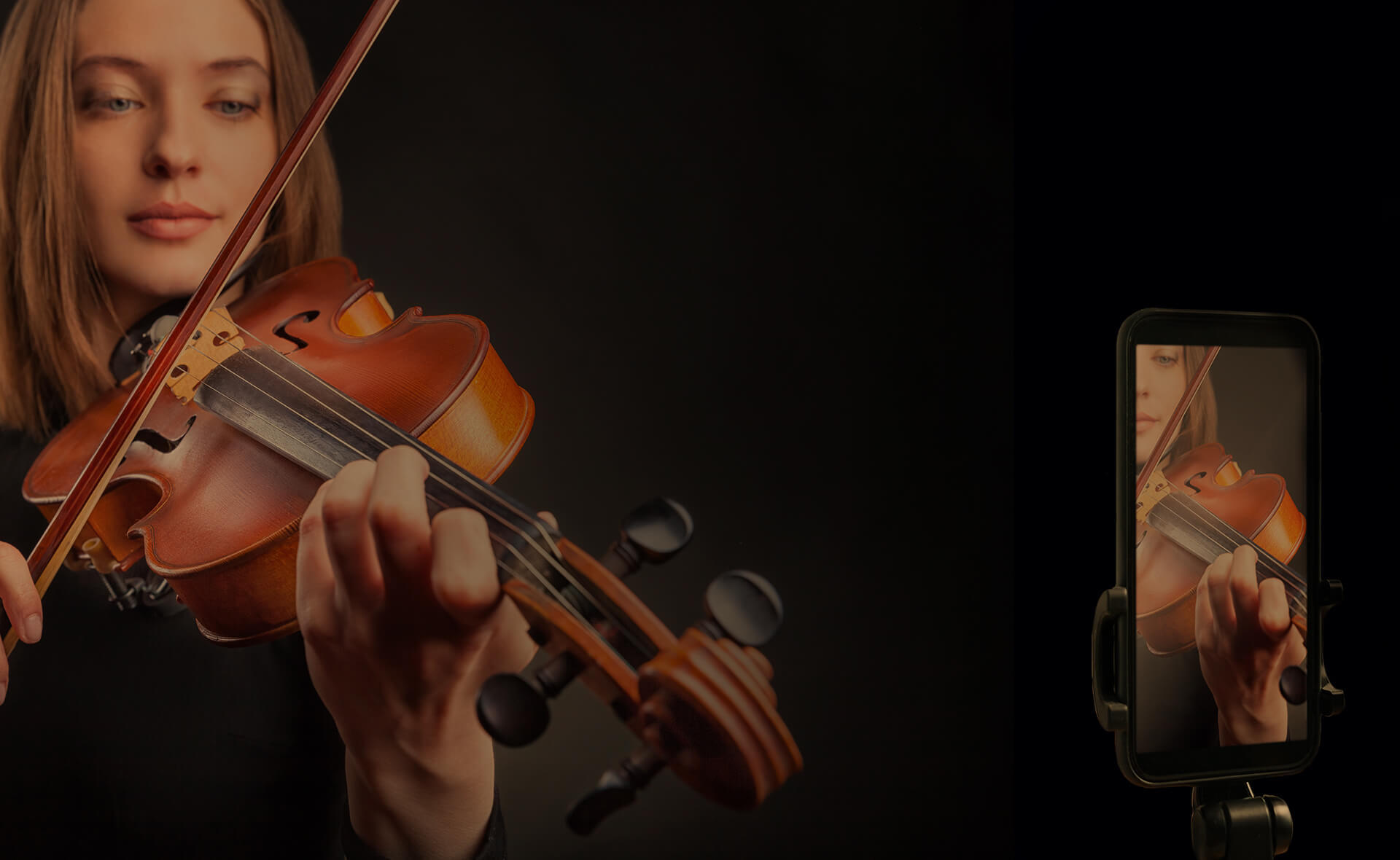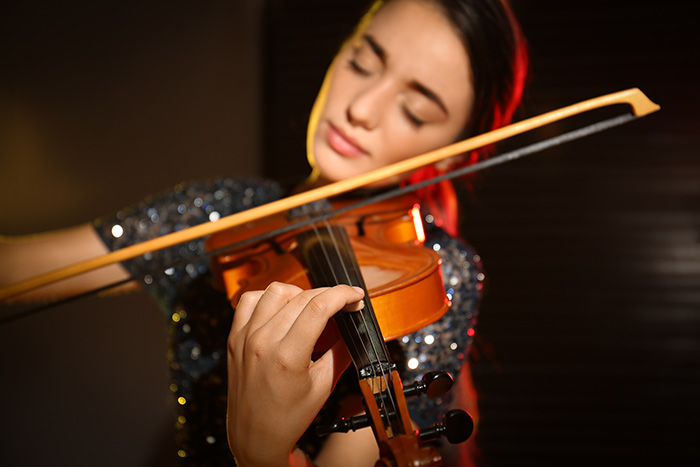The Start
Finding the right teacher is probably one of the first challenges that every instrumental student will face. As I briefly discussed in the previous article, it is difficult if not impossible to learn violin on your own as a beginner and achieve a satisfactory level of playing.
The challenge is not only in the complex violin posture with two completely different techniques in both hands, but also in performing many other musical activities at the same time, e.g.improving aural skills, sense of rhythm, learning music notation, and also awakening musical sensitivity and searching for your own musical taste. It may seem overwhelming at first to learn a new skill. To find freedom in operating those challenging actions with ease it is essential to choose a good violin teacher. This is probably one of the most significant questions every violin student should ask: how do you recognise that you are in good hands?

Recognising the Right Person
In a perfect world we would fully trust the person who guides and supports our musical journey, although it is fine sometimes to think critically of his or her pedagogical methods and approaches especially at the start of your musical education. In order to help I have prepared some simple questions:
- Am I enjoying the lessons?
- Do I feel inspired and motivated to practice? Does my excitement and curiosity grow after each lesson?
- Am I looking forward to the next lesson?
- Do I know what to do at home to improve my playing? Do I understand my homework and how to practice particular difficulty?
- Do I feel safe during the lesson?
- Do I feel as If I am being listened to in the lesson?
- Do I feel that I am being respected in the lesson?
At the beginning, I would not worry too much about choosing a teacher with the most suitable violin methods or violin school. The psychological aspect of his pedagogical work is way more important at that stage. The teacher should make sure your love for art and passion for music stays and grows.

Dedication and Passion for Teaching
There are many different factors that can impact our success in violin playing that we do or don’t have control over. Apart from the perhaps unfair fact of randomness which may occur in simply being lucky in life, choosing and recognising a dedicated teacher is definitely the most certain step towards good development.
A good teacher who is truly passionate about music and most importantly about educating others will equip you with fine qualities that will benefit your playing, general perception on art as well as will support other skills that are not necessarily related strictly to music, for example improving efficient learning skills, performing under pressure or being able to concentrate on a long term task and keep motivated throughout the long and challenging process.

Communicative and Tasks Oriented
You’re not practicing enough. Go and practice!
It is obvious that if anyone would like to improve on any skill some amount of work needs to be done, although sometimes we may be confused about what we should focus on first during our homework. Even after practicing systematically perhaps we are still not making the progress we wish to make. Thankfully, an experienced musician has already spent hours trying to figure out how to practice certain difficulties to get the best results and some of the approaches may be surprising.
A good teacher is able to communicate his expectations and most importantly is able to explain how to achieve it, how to practice. This is quite a deep subject therefore probably the teacher will share bit by bit focusing on one matter at a time dedicating each lesson for one thing at a time. The right teacher will be supporting your music journey in a well mannered style, giving you only necessary constructive criticism followed by sharing advice on how to work on it.

On Practising and Analysing
A talented teacher should be able to assess your abilities and define the cause of an issue quickly, as well as intuitively decide and suggest what should be prioritised and what may resolve naturally as a side effect.
Violin playing is such a mystery to most students and even to professional performers who can see that often the answer is not as simple as it might seem to be. Sometimes to solve a particular problem we should be working on a completely different area from the one in which the problem appears.
In violin lessons a good teacher is able to assess you quickly by analytically looking at your problem, searching for the cause and finding the solution. For example if Bob is having a problem with intonation in a particular passage a good teacher would not ask Bob to play over and over a certain passage in the final tempo without any intention, because the problem with intonation may be just an alarm for a more complex issue. The teacher would take the role of Sherlock Holmes, detecting the problem. Perhaps the student should look at the quality of their hands as well as the whole body. Once Zukerman said that for him the violin playing starts from the feet.
Probably Bob should look at his relationship with the floor, try to feel the weight of his whole body. If he would unlock his legs, it would give a message to the rest of the system that there is no need to tense and prepare for some enormous effort. That it is ok.
The problem with intonation may also be simply in not being familiar with certain positions or keys. I remember having troubles with tuning a particular part of Mozart’s 3rd violin concerto, after some time I realised that Mozart is not so challenging for me, but I simply haven’t played much in 4th position in G major on E string.
My teacher suggested that I leave that passage and start getting to know the 4th position by playing made up melodies in that part of the violin effortlessly with joy and excitement and also carefully listening to my intonation.
I remember becoming more aware of the position of my hand. I started thinking that the thumb position between 3rd and 5th position was a bit uncomfortable and I couldn’t feel that it was fully supporting the instrument. I also started practicing scales in 4th position and Kayser position exercises.
I haven’t looked at Mozart for some time and surprisingly the intonation has improved and that passage went well in my recital! The teacher’s advice to become generally better in playing violin around that area with sensitivity to the quality of the physical aspect and mental calmness as well as most importantly stop obsessing over the Mozart concerto, was a great idea.

Individual Instrumental Lessons Are for You! Appreciate Them
The dynamic is very important in the lesson and a good relationship between a student and the teacher may support the progress. Usually, the teacher would be responsible for an appropriate atmosphere in the lesson, but remember that the student’s behaviour during the lesson may also change the dynamic of the lesson. Teachers are also humans. Even though they should be very professional and efficient, they may lose interest and motivation to teach you to a good standard and even decide to stop sharing their knowledge with you at all.
Do your best to do your homework and come as prepared as possible. Teachers understand that everyone needs some extra encouragement in practising particular difficulties, but use the lesson as well as possible. Respect the teacher and do not cancel the lessons at the last minute three weeks in a row because you have forgotten that you have signed up for dance classes.
It is a privilege to have one to one instrumental lessons, where the teacher concentrates only on you for the whole lesson. Use the luxury of individual violin lessons as much as you can to develop your talent and pursue your passion. Take advantage that someone is doing their best to help you and give the best feedback they can at the moment. If you feel that








